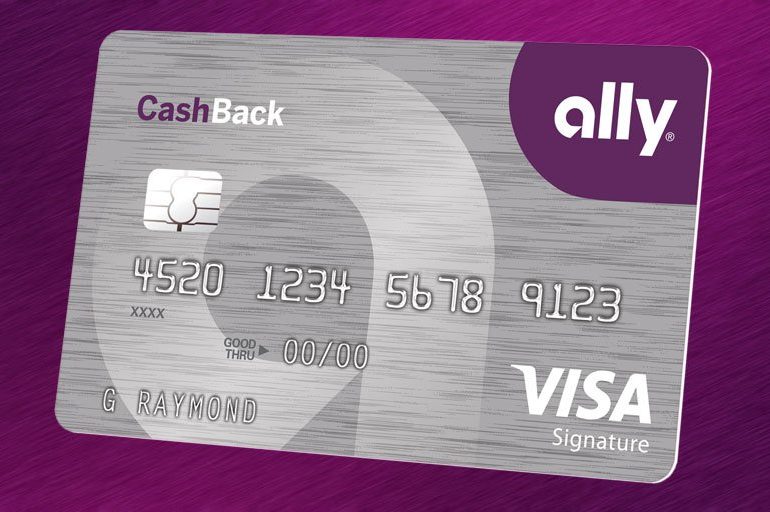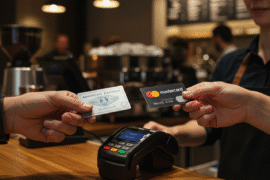This article may contain references to products or services from one or more of our advertisers or partners. We may receive compensation when you click on links to those products or services. Nonetheless, our opinions are our own.
The information presented in this article is accurate to the best of our knowledge at the time of publication. However, information is subject to change, and no guarantees are made about the continued accuracy or completeness of this content after its publication date.

Updated by Albert Fang
The new Ally CashBack is a credit card that provides good returns on grocery and gas spending. Those who deposit rewards toward an eligible Ally bank account also receive an additional 10% bonus. Qualifying deposits include non-IRA, money market, and interest checking accounts. You get 2% cash back at gas stations and grocery stores along with 2.2% when you deposit your rewards into an Ally account.
The Ally CashBack pros
- No annual fee. Ally bank is known for being consumer-friendly and therefore waives annual fees to save their reputation.
- $100 sign-up bonus once you spend $500 on eligible purchases within 90 days of opening your account. This goes well with the 10 percent bonus for depositing your rewards, as you will get $110.
- Up to 2%, cashback rewards on groceries and gas. While this is not as high as the average 3 percent that other credit cards provide, what you have to consider is that these other cards cap your purchases each quarter, meaning you can only get so many rewards back for purchases then you have to wait until the next quarter to get more. Ally doesn’t give you a cap on shopping rewards, which is a major plus.
- Earn 1% cashback on other purchases. a basic rate among many credit cards.
- Intro APR- 0 percent on balance transfers within the first twelve billing cycles after opening your account, and 15.24 percent, 20.24 percent or a 25.24 percent variable thereafter.
Ally CashBack credit card review
While they are not the best, these are above average rewards for cardholders with an average credit score. Other bank cards pay even more for gas and grocery spending like the Blue Cash Everyday from American Express.
The Ally CashBack credit card also has a decent welcome bonus as well but it is nothing special. In fact, other credit cards that offer no annual fee give better bonus rewards.
Right now, you can get a $100 bonus when you spend $500 on eligible purchases within the first three billing cycles as long as your account is open and in good standings. If you deposit this $100 reward into your Ally bank account, the 10 percent bonus will apply and you will get $110. Note, only purchases are eligible for the bonus. Therefore, things like balance transfers, fees, and cash advances do not qualify. Certain purchases considered as cash equivalents are recognized as cash advances, such as foreign currency, lottery tickets, and traveler’s checks.
The 3% foreign transaction fee makes the Ally credit card a poor choice for traveling overseas. Therefore, if you travel a lot, you might want to look elsewhere.
Moreover, there is no annual fee associated with an Ally Credit card and the regular APR is 13.24%, 18.24%, and 23.4% variables. However, you need to have excellent credit in order to qualify for an Ally credit card with a score of 670 to 850. Thus, the Ally credit card doesn’t set a cap on how much rewards you can receive as some other credit cards do.
It would be a smart move to get the Ally credit card to purchase all your gas and groceries with if your credit score is in the higher range and you qualify. As for all other shopping you do, you might consider using another card with higher bonus rewards.

Reviewed and edited by Albert Fang.
See a typo or want to suggest an edit/revision to the content? Use the contact us form to provide feedback.
At FangWallet, we value editorial integrity and open collaboration in curating quality content for readers to enjoy. Much appreciated for the assist.
Did you like our article and find it insightful? We encourage sharing the article link with family and friends to benefit as well - better yet, sharing on social media. Thank you for the support! 🍉
Article Title: Ally CashBack Credit Card Review: Is an Ally Card Worth It?
https://fangwallet.com/2020/01/05/ally-cashback-credit-card-review-is-an-ally-card-worth-it/The FangWallet Promise
FangWallet is an editorially independent resource - founded on breaking down challenging financial concepts for anyone to understand since 2014. While we adhere to editorial integrity, note that this post may contain references to products from our partners.
The FangWallet promise is always to have your best interest in mind and be transparent and honest about the financial picture.
Become an Insider

Subscribe to get a free daily budget planner printable to help get your money on track!
Make passive money the right way. No spam.
Editorial Disclaimer: The editorial content on this page is not provided by any of the companies mentioned. The opinions expressed here are the author's alone.
The content of this website is for informational purposes only and does not represent investment advice, or an offer or solicitation to buy or sell any security, investment, or product. Investors are encouraged to do their own due diligence, and, if necessary, consult professional advising before making any investment decisions. Investing involves a high degree of risk, and financial losses may occur including the potential loss of principal.
Source Citation References:
+ Inspo












































